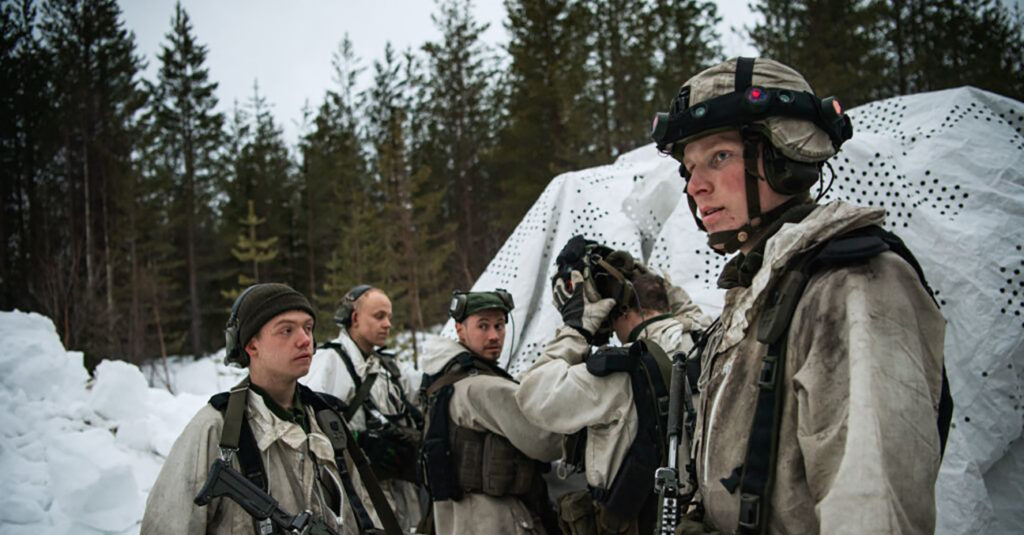Swedish Army Soldiers prepare for Arctic exercises in northern Sweden. A recent commentary in War on the Rocks, a military affairs website, argues that NATO should take a primary role in the region to allow the U.S. to focus more military resources in Asia. AFP/GETTY IMAGES
An increased presence by NATO military forces in the Arctic could allow United States to focus its military energy on the Indo-Pacific theater, according to an analysis in War on the Rocks, a military affairs news site.
The November 2024 commentary — “More NATO in the Arctic could free the United States up to focus on China” — was written by four retired and active-duty military officers and analysts from the U.S. Army, the U.S. Air Force and the U.S. Coast Guard. They argue that the PRC’s rising presence and interest in the Arctic could be countered by an increase in monitoring, deterrence and presence by NATO forces, which would allow the U.S. to focus more of its resources in Asia where the PRC has acted aggressively toward Taiwan, the Philippines, and Vietnam among other neighbors in recent years.
The U.S. “will need to rely more on Arctic-minded NATO allies to deter Russian and Chinese ambitions. …By leveraging NATO, particularly the Arctic expertise of British, Canadian, and Nordic allies, the United States can ensure a stable Arctic presence, enabling a robust military posture in the Indo-Pacific,” wrote Ryan R. Duffy, a retired U.S. Army infantry officer who served primarily in Europe; Jahara Matisek, Ph.D., an active-duty U.S. Air Force command pilot serving as a military professor at the U.S. Naval War College; Jeremy M. McKenzie, a retired U.S. Coast Guard officer and aviator; and Chad M. Pillai, a senior U.S. Army strategist who has served in the U.S., Asia, Europe and the Middle East.
The threat to NATO and the U.S. interests is growing, these experts argue. Recent joint bomber and naval patrols by the PRC and Russia signal strengthened military coordination in the Arctic and portends possible conflict over sea lanes, fisheries, deepwater mining and other strategic resources as the ice sheets continue to melt. Fortunately, the writers contend, NATO already has a good infrastructure in place to counter these challenges. Finland and Sweden’s entrance into the alliance greatly bolsters NATO’s cold-weather fighting capability. And the United Kingdom’s leadership in NATO’s Joint Expeditionary Force (JEF) provides a credible framework on which to expand the Arctic presence of the Nordic members and Arctic-minded NATO members like Canada and the U.K. “Canada, the Nordics, and other Arctic-minded allies should lead NATO in Arctic defense as the United States pivots to counter China in the Indo-Pacific. The combined Sino-Russian threat is global, and the United States needs allies to share the burden of defense,” they maintain.
NATO needs to develop a comprehensive Arctic strategy beyond declarations, the authors wrote. A robust deterrent in the region not only will benefit U.S. allies such as Canada and the Nordic nations but will free up the U.S. to deter any threats to commerce, free maritime passage and aid allies in Asia. “Through collective action and improved Arctic-specific readiness, NATO can deter Sino-Russian aggression in the Arctic while supporting a U.S. shift to the Indo-Pacific,” they wrote.

